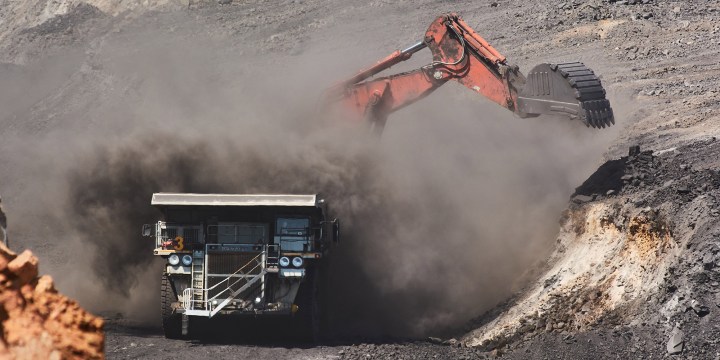DE-RISKING
SA’s Thungela goes Down Under to acquire coal mine for R4.1bn

Small wonder that Thungela Resources is looking for greener pastures, as Transnet’s woes are hardly its only domestic challenge, which also include Eskom, illegal mining and the battered roads that coal companies increasingly have to rely on as the rail network collapses.
South African coal producer and Anglo American spin-off Thungela Resources said on Friday that it planned to buy the Ensham coal mine in Australia for R4.1-billion as part of a “de-risking” strategy to reduce exposure to the withering state in its home base. “De-risking” in this context is corporate lingo for hightailing out of the Dodge that is South Africa.
The timing of the announcement, on the eve of the Investing in African Mining Indaba in Cape Town, is poignant, even if this was not Thungela’s intention. Transparency generally demands that listed companies announce such deals when the ink is drying.
It will not be lost on Indaba attendees that Thungela, which is flush with cash thanks to red-hot coal prices, is expanding its asset base offshore.
“The Transaction is a step towards de-risking our underlying business and bolstering our resilience, recognising the ongoing infrastructure challenges in South Africa,” Thungela said in a SENS announcement.
Ongoing SA meltdown
These “ongoing infrastructure challenges” of course refer to the ongoing meltdown of South Africa’s state, which is withering under ANC rule. Thungela flagged in November last year that it expected its coal exports for 2022 to be 13 million tonnes (Mt), 600,000 tonnes less than its previous guidance, because of the “ongoing inconsistent and poor rail performance by Transnet Freight Rail (TFR)”.
That’s a loss of about 4.5%, which may not seem like a lot. But when the company unveiled its full-year 2021 earnings earlier in 2022, it said at the time: “The range for export saleable production is revised to between 14 Mt and 15 Mt for 2022, taking into account a gradual rather than immediate recovery in TFR performance.”
So its outlook keeps deteriorating in line with TFR’s deteriorating performance. It lost as much as 15% of the exports it had anticipated at the time of its 2021 full-year earnings announcement in 2022. That would have flowed nicely into Thungela’s bottom line. The company’s interim profit for 2022 was a record R9.6-billion compared with R351-million for the same six-month period in 2021 — a jaw-dropping 27-fold increase.
Small wonder that the company is looking for greener pastures, as Transnet’s woes are hardly its only domestic challenge, which also include Eskom, illegal mining and the battered roads that coal companies increasingly have to rely on as the rail network collapses. And Thungela is in a position to “de-risk” abroad even after paying fat dividends — the interim 2022 dividend saw R8.2-billion returned to shareholders, some of whom may have thought that their stake at one time was like a proverbial lump of coal.
Soaring coal price
But the coal price last year soared, defying those who have been writing the commodity off as a lost cause. Russia’s invasion of Ukraine was no doubt the main factor, which compounded supply shortages as the sector is slowly deprived of capital in the face of the global energy transition to quell the threat of rapid climate change.
There is a reason why Thungela was demerged from Anglo American. It was under pressure from investors who don’t want coal in their portfolio and the company has a number of “net-zero” emissions targets it is striving — with some success, it must be said — to meet.
In the long run, it remains to be seen if these currents could rock Thungela’s moves to get out of the Dodge that is South Africa’s volatile social and economic environment.
Visit Daily Maverick’s home page for more news, analysis and investigations
A growing number of banks will not finance new coal projects, be they mines or power plants. The Ensham coal mine which it is in the process of acquiring is of course not a new project, and for the record, Liberum Capital Limited is the UK-based financial adviser and South Africa’s Rand Merchant Bank is the sponsor.
Ensham produced 3.2 Mt of high-quality, low-ash and low-sulphur thermal coal in 2022 — which presumably doesn’t have issues of the Transnet kind getting to port — and Thungela said: “The payback period of the transaction is potentially within two to three years.”
That would represent a pretty fast return on investment, which is probably crucial in this day and age for any coal-related acquisition. Ensham has an expected “life of mine” for another 16 years, until 2039. It remains to be seen if it will have a market by then. DM/BM

















 Become an Insider
Become an Insider
Why more coal? Doesn’t Thungela understand why coal is a bad investment? Perhaps they thought Anglo was just being fussy when they de-merged from them. I wonder who the investors are, and how long-term they think.